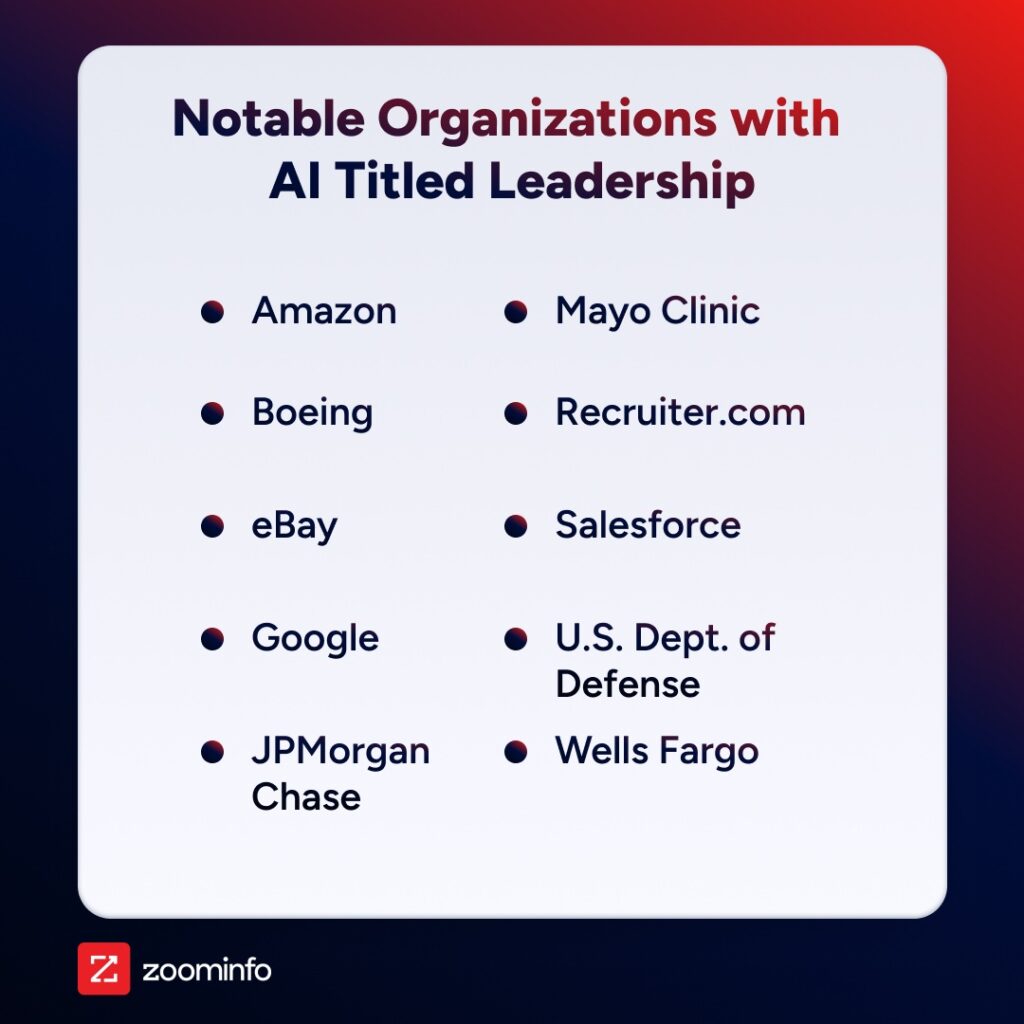For anyone in modern business, it’s hard to remember the last time artificial intelligence wasn’t dominating news headlines and workplace conversations.
The surge of investment in AI, which some experts liken to a new “space race,” is upending the ways we work, learn, and create like few technologies before. And that’s translating into giant leaps for AI-related job opportunities: a new analysis by ZoomInfo reveals that AI-related job titles have tripled in just two years, with no signs of stopping.
The research, by our data science team, leverages ZoomInfo’s business contact database, which tracks more than 1.5 million personnel changes per day.
Our analysis also found that, despite the popular emphasis on generative AI technologies like ChatGPT, most of the overall job titles in AI still focus on broad-based disciplines such as engineering — indicating that employers of all kinds are building the core infrastructure for AI products and services that can drive sustained growth.
Senior AI Leadership Roles Expanding
ZoomInfo’s vast B2B database includes incredibly accurate profiles of more than 100 million companies, over 340 million professionals, and over 11 million C-level leaders. Our data team searched and filtered these records to identify new roles and leadership hirings that included terms like artificial intelligence or AI, and machine learning or ML.
One of the more striking changes is the surge in AI-focused senior leadership positions. Senior leaders are an important proxy for overall strategy in a company, with larger compensation packages, broader responsibilities, and control of budgets and headcount. Adding these senior leaders with AI knowledge and focus reflects a more significant level of investment than companies that are only hiring individual contributors or frontline managers.
In Q2 of 2022, there were 3,731 tracked mentions of new AI-related leadership roles. In Q2 of 2023, this number nearly doubled. By Q2 of 2024, there were 10,875 AI leadership hires — nearly 3x larger in just two years.
The most notable increase is the tremendous rise of AI-related C-Suite roles. We saw a 428% increase in just two years, indicating a critical shift in prioritizing top-down AI investment. Over the same period of time, AI-related VP titles have increased by 199%, AI Directors are up 197%, and AI Managers have increased by 174%.
Companies installing top-tier leadership with an explicit AI focus span a wide variety of industries and sectors, from Amazon to Boeing to the U.S. Department of Defense.

Which Types of AI Jobs Are Most Popular?
We also analyzed the most popular types of AI jobs to see how the recent explosion of generative AI tools is being reflected in the hiring landscape.
Far and away, engineer-related titles are the most common in this emerging field, followed by developer and researcher.
Here are the most frequently listed AI job titles:
AI Engineer
AI Researcher
AI Scientist
AI Specialist
AI Developer
With the recent rise in “generative” terminology, titles that included the term “generative AI” were also examined. “Generative” AI titles have had a significant spike in the past year, starting in the back half of 2023, and show no sign of slowing.
While still marginal compared to the universe of all AI-related job titles — “generative” titles only account for 3% of total AI titles currently held — new positions with generative AI titles are 250 times more common than just two years ago.
Accurate Data: the Foundation of AI for Business
As exciting as it is to see the immense impact that GenAI has had in such a short time, without access to comprehensive and accurate data, these tools — and those hired to employ them — have no runway.
A company’s data infrastructure can make or break any investment in this technology, and it’s a struggle business leaders are quickly realizing. Mismanaged databases, a CRM riddled with holes, or outdated information feeding your algorithms can result in costly, irreparable damage that’s extremely tricky to not only catch, but fix.
High-quality data can quell these fears. If your company is one of the vast number building and customizing AI tools for critical business outcomes, make sure that unparalleled data and signals are just as high on your priority list.

